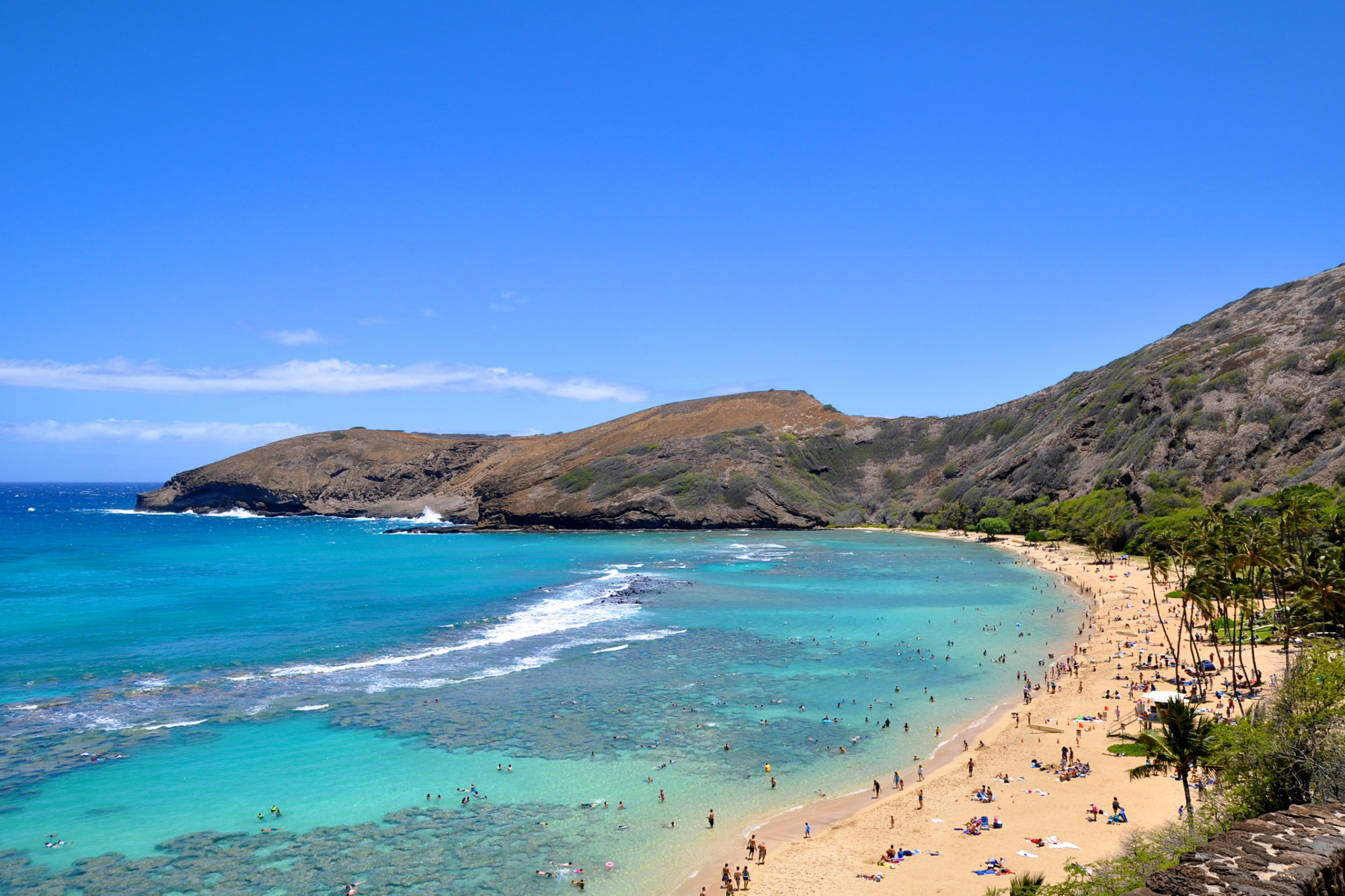I grew up in Hawaii. When I tell people that, the most common reaction I get is a dreamy sigh and a comment along the lines of, “How wonderful it must have been to grow up in paradise! I bet you were at the beach every day!”
I usually smile and agree that, yes, growing up in Hawaii was wonderful and made for an oftentimes idyllic childhood. I love my home state. But what I seldom tell people is that I really hated the beach when I was a kid. In fact, it was my dislike of the beach that drove me to love swimming pools.
I lived on Oahu, and most of the beaches nearby were overrun with both tourists and locals alike. That meant they often were dirty, including the water. When I was nine, I found myself floating next to a floater — and by that I don’t mean another person. I fled the water.

When I was ten, we went snorkeling at Hanauma Bay, one of the most beautiful beaches in the world, a true showcase of the abundant and brilliant wonders of the sea. I sat on what I thought was a rock, and was terrified when an enormous moray eel surged out, jaws snapping. I fled the water.
In my fear, I turned to swimming pools. They were safe, the water clean and clear. There were no waves to crash over you, no critters to slither against you, and no floaters of the fecal kind to pop up around you. I could swim and float and escape my troubles in the pool. Best of all was slipping into the warm embrace of the hot tub, then cannonballing back into the invigorating cool water of the pool. When I reflect on my love of water and of how fortunate I am to be serving the industry that quite literally kept me afloat all those summers ago, this is what I think of. This is my water story.
Water stories have been on my mind since I attended this year’s World Aquatic Health Conference in Nashville, Tenn. last October. The concept was introduced by keynote speakers Dr. Wallace J. Nichols and Bruckner Chase, who explained that water stories are the tales of how one fell in love with water. Nichols is author of Blue Mind, a book that explains, in scientific detail, our innate connection to water and how being around or under water can have real neurological and other health benefits. Chase is a self-described professional waterman, or endurance swimmer, and though the two did not have shared experiences, their stories were connected by their abiding love of water.
Finding and telling your water story was the theme of a subsequent seminar, in which Nichols and Chase encouraged attendees to craft their own stories and share them with the group. As each person spoke, something magical happened: the lines on their faces softened as they were transported to the days of their happiest childhood memories, moments universally relatable: being taught how to swim by a beloved parent; hanging out with friends at the local pool; swinging in an old tire over the lake; and for one person — a lifeguard — pride in being able to save a life. I felt a warm closeness to these people who were, just a few minutes ago, strangers. Now we were connected, united by water.
As members of the pool industry, our connection to water is, in the end, what connects us all. So tell me, what’s your water story?



